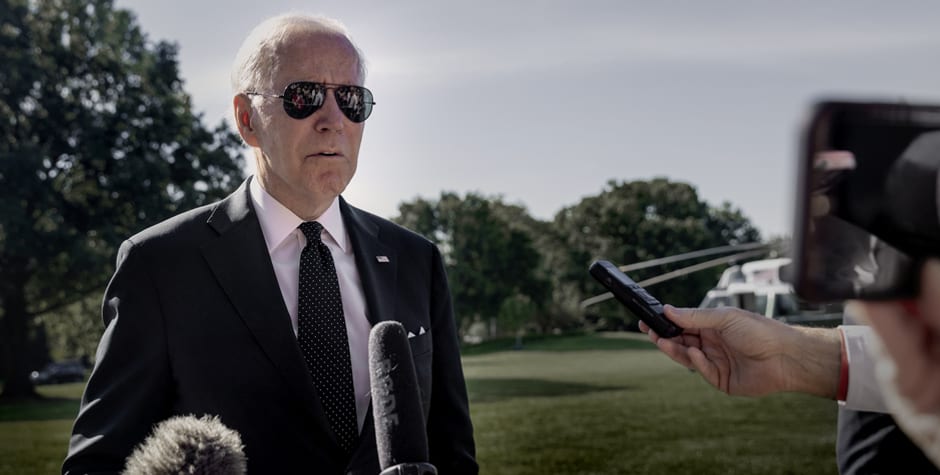Does Anybody Know What Our Policy Is Toward Taiwan?
Last week, for the third time in just over a year into his presidency, Joe Biden said that the United States would militarily defend Taiwan in the event of an attack by the People’s Republic of China. Under normal circumstances, the President of the United States stating U.S. policy once, let alone stating it three times over, would be a clear indication of America’s intentions.
Unfortunately, these are anything but normal circumstances. Each time President Biden has seemingly committed to defending Taiwan, his remarks have been hastily walked back by his underlings. This does not project strength to our adversaries, like the People’s Republic of China, nor does it instill confidence in our allies and partners.
President Biden coupled this misstep with perhaps an even bigger policy mistake in not inviting Taiwan to join its new Indo-Pacific Economic Framework initiative. The new economic partnership includes Japan, South Korea, India, Australia, New Zealand, and much of Southeast Asia, and it certainly builds on the work we did in the Trump Administration to build new partnerships that isolate China. But leaving Taiwan out of this agreement makes absolutely no sense, and is in fact counterproductive. Taiwan’s economy is among the most prosperous in the world. Its semiconductor production is essential to global supply chains. By excluding Taiwan, we are either indicating we do not consider it to be a sovereign nation or sending a clear message of weakness and deference to Beijing. Either way, this move only makes our policy toward Taiwan weaker and more confusing.
This week’s announcement of the Administration’s plans to strengthen our bilateral relationship with Taiwan does not repair this mistake. It does not change the fact that in keeping Taiwan out of this new partnership, Team Biden is only further isolating Taiwan and inviting the Chinese Communist Party (CCP) to crush Taiwan’s freedom. This is bad for America, and for the prospects of peace in the region.
I know from my time as Secretary of State that dealing effectively with China means being clear in our intentions. But judging by Joe Biden’s track record thus far, strategic clarity does not seem to be a priority.
Prior to the Russian invasion of Ukraine, Biden remarked that a “minor incursion” by Vladimir Putin’s forces would not be enough to merit a response by the United States. Those remarks were walked back by White House staff, of course, but the damage was done. Putin was given the green light and sent his tanks across the Ukrainian border. The President later said that Putin “cannot remain in power,” suggesting that official U.S. policy was to effect regime change in Russia. Again, those comments were walked back by White House officials. If the same ambiguity and confusion that surrounded U.S. policy toward Ukraine surrounds our policy toward Taiwan, it will only invite Xi Jinping to do exactly what Vladimir Putin did.
Speaking of China’s leaders, while the White House continues to argue with itself over what America’s policy toward Taiwan should be, the CCP is taking advantage of its confusion and weakness. This week, the Chinese military conducted a combat "readiness patrol" in the seas and airspace around Taiwan. CCP officials stated that it was a necessary action to respond to "collusion" between Washington and Taipei. Clearly, Beijing does not fear American reprisal and is certain that this Administration is weak.
The failure of Team Biden to send a clear message regarding U.S. policy toward Taiwan is confounding and deeply dangerous. Our policy can still be ambiguous in its language; but we need to be clear about what our intentions are regarding Taiwan, and our actions need to reflect those intentions. Unfortunately, by projecting confusion about our policy and shutting Taiwan out of new partnerships, both our words and deeds reflect a serious lack of commitment to defend Taiwan and treat it as an independent, sovereign nation. If that is what Xi Jinping and the CCP think, they will not hesitate to make good on their promise to invade and crush freedom on the island. Such a move would be disastrous for America and the entire world.
Support the work of the ACLJ as we continue to bring you expert analysis on the issues that matter most.

